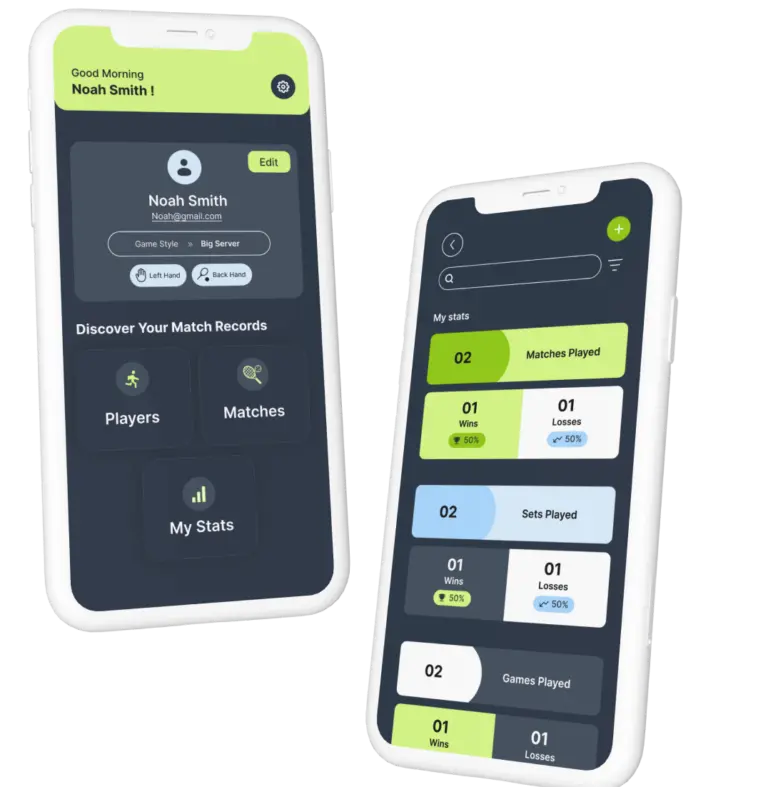In the world of competitive tennis, the margin between winning and losing often comes down to small, yet crucial details. Whether you’re a league player, a tournament competitor, or someone passionate about improving your game, finding a way to capture and learn from those details is essential. One of the most effective strategies for this is reflective journaling—an often overlooked, yet powerful tool for reflecting on performance and improving over time.
This post explores how reflective journaling can transform your tennis game and give you a competitive edge.
1. What is Reflective Journaling in Tennis?
Reflective journaling involves writing down and analyzing your thoughts, feelings, and actions after a match or practice session. It goes beyond simply recording scores or stats. Instead, you dive deeper into the mental and strategic aspects of your game. How did you feel during key points? What strategies worked or didn’t work? Did you stick to your game plan, or were you forced to adapt?
In the context of a tennis journaling app, this process becomes even easier. You can instantly log your thoughts after a match, categorize your reflections, and review them before your next game.
2. Tracking Your Performance in Real-Time
One of the greatest benefits of a tennis journaling app is its ability to track your performance over time. Instead of relying on memory or scattered notes, you can log every match, set, or practice session in real-time. The app provides a centralized platform where you can track and analyze your progress, making it easier to spot trends and patterns in your performance.
For example, you can note which opponents gave you the most trouble and why. Did you struggle with their topspin-heavy forehand or fail to respond to their aggressive net play? By having a detailed log, you’ll not only know your weaknesses but also gain insights into how to correct them.
3. Analyze Your Opponent’s Game
Reflective journaling isn’t just about self-analysis; it’s also a valuable tool for analyzing your opponents. When you play someone more than once, having previous match data at your fingertips is invaluable. With an app, you can log details about their game—what shots they favor, how they handle pressure, their weaknesses, and how they approach different match situations.
Imagine stepping onto the court for a rematch with all your opponent’s strengths and weaknesses detailed in an easy-to-access format. Knowing where to exploit your opponent’s vulnerabilities can give you a huge advantage. Instead of reacting to their game, you can control the flow of the match.
4. Mental Game Enhancement
Tennis is often described as a mental game as much as a physical one. The pressure of key points, handling mistakes, or bouncing back after losing a set can greatly impact your performance. Reflective journaling helps you gain insights into how you handle these situations.
By regularly logging how you felt during different moments of the match—whether you stayed calm under pressure or got frustrated—you’ll start to identify patterns in your mental game. Maybe you’ve noticed that you lose focus when your opponent breaks serve, or you feel the pressure most in tiebreak situations. Having this awareness allows you to make necessary adjustments, mentally preparing for similar scenarios in future matches.
5. Creating and Refining Strategies
A journaling app also helps refine your match strategies over time. After each match, you can note which strategies worked and which didn’t. Maybe your serve-and-volley approach worked well against a baseline grinder, or perhaps you had success by hitting to your opponent’s weaker backhand side.
By reflecting on these tactics, you can adapt and refine your strategies for future matches. For instance, if you faced an opponent with a similar game style to a previous player, reviewing your notes can help you employ the same winning strategies or avoid mistakes you’ve made in the past.
6. Building Long-Term Confidence
One of the most powerful benefits of reflective journaling is the confidence it can build over time. By keeping track of your progress and reviewing past successes, you’re able to see how far you’ve come. Journaling not only helps you track the technical aspects of your game but also serves as a confidence booster.
When you’re feeling down after a loss, going back through your journal and reading about past victories or improvements can give you the motivation to keep pushing forward. With each entry, you’re documenting your tennis journey—one that shows how hard work and reflection lead to growth and success.
Why Use a Tennis Journaling App?
While traditional paper journaling can be effective, a tennis journaling app like Match Recall offers enhanced convenience, organization, and insights. You can input data instantly, retrieve past match notes effortlessly, and visualize your progress through charts and statistics. The app helps you categorize matches, log opponent details, and set reminders for post-match reflection.
With features like talk-to-text and instant access to past entries, journaling becomes an easy habit rather than a tedious task. Plus, having all your reflections stored in one place ensures you’re always prepared for future matches.
Conclusion: Reflect, Analyze, and Win with Tennis Journaling
Incorporating reflective journaling into your tennis routine offers numerous benefits, from performance tracking to mental game improvement. By using a tennis journaling app like Match Recall, you take your reflection process to the next level. With the ability to analyze your performance, strategize effectively, and track your progress over time, journaling can be the key to unlocking your full potential on the court.
Start reflecting today, and watch how consistent analysis and preparation lead to smarter play and more wins. Ready to give it a try? Download Match Recall and start transforming your tennis game one match at a time!





